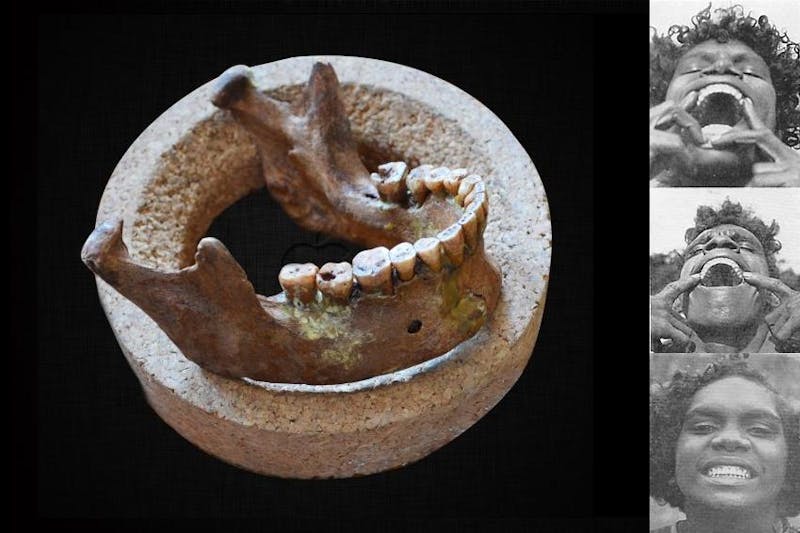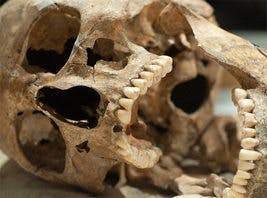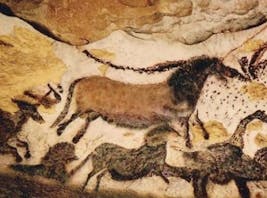No need for braces before agriculture
 Typical lower jaw from a hunter-gatherer, and aborigins from early 1900’s.
Typical lower jaw from a hunter-gatherer, and aborigins from early 1900’s.Before we invented agriculture our ancestors mostly had perfectly aligned teeth, without dental crowding or the need for braces. These tooth and jaw problems – which are now extremely common – are rarely or never seen in skeletons from our hunter-gatherer ancestors.
This is yet again showed in a new review of a few hundred European skeletons from the period 26,000 to 4,000 B.C.:
Malocclusion and dental crowding arose 12,000 years ago with earliest farmers
Similar findings have been seen many times before and are of great interest to everyone who has children with growing faces. How do you make them get as well-formed and well-functioning teeth and jaws as possible? Something in our modern environment messes things up – but what?
After discussing this with some experts in the field (for example at the Ancestral Health Symposiums), I’ve three things that seem important for well-formed jaws and teeth. Three things that we’re trying to follow with our children.
Three Likely Important Things
1. Breastfeed as long as possible – preferably one or even two years of partial nursing. This was the norm in past times and may contribute to the development of wider jaws where all teeth fit.
2. Ensure that children regularly chew on hard, chewy things – like our ancestors did. Not just modern junk and wheat-based food that completely lack chewing resistance. Resistance and chewing strengthens the jaw muscles and may contribute to a normal development of the jaws.
3. Limit the amount of (simple) carbohydrates. Overdoses may potentially provide abnormally high levels of growth-stimulating hormones like insulin and IGF-1 which may disturb growth of bone structures.
Especially numbers two and three may have been dramatically disturbed in conjunction with the agricultural transition, when today’s problems really started.
Conclusion
Do I know that the things stated above are important? No. But there are good reasons to suspect they are. The more of the things you ignore perhaps the greater the risk for dental crowding and jaws that don’t fit well together. Which may led to functional disadvantages as well as cosmetic ones. This is of course nothing you would wish upon your children.
How are our children’s jaws doing? So far so good. Perhaps it’s pure luck. Perhaps not.

